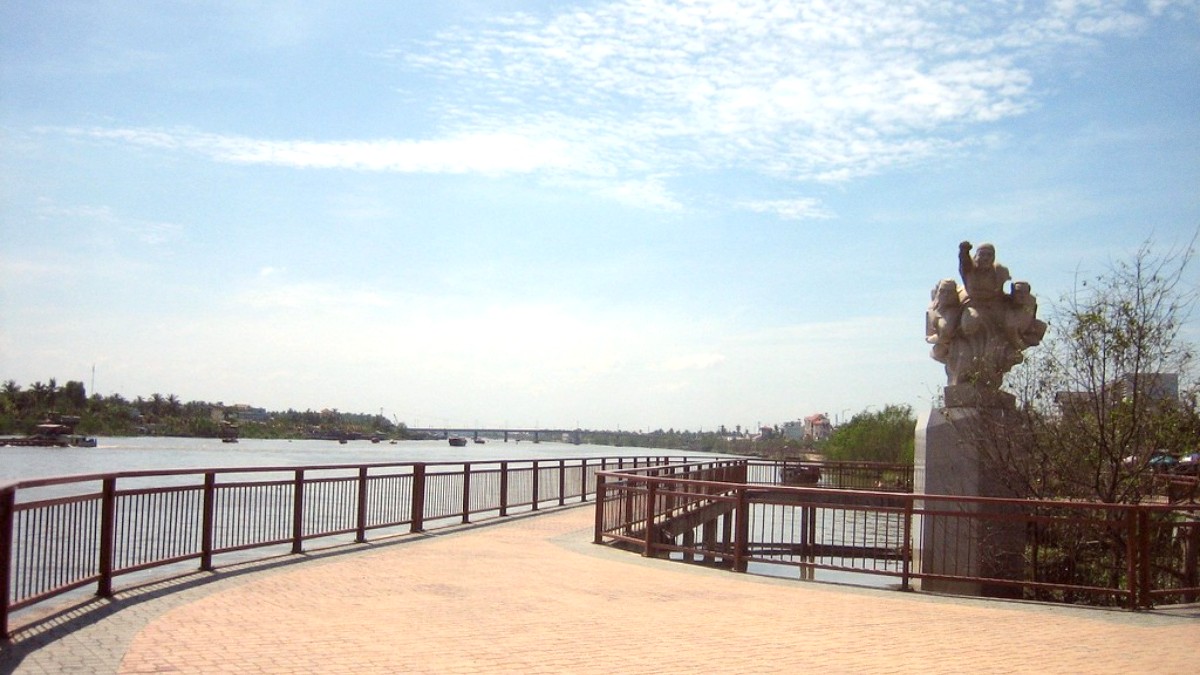
Mekong Delta, Vietnam
Viettel, Mobifone, and Vinaphone are Vietnam's main mobile network providers. They maintain good coverage in Ben Tre and rural areas.
Wi-Fi is widely available and typically free in hotels, guesthouses, cafes, and many restaurants throughout Ben Tre City and many rural homestays.
Vietnamese is the official language. English proficiency is limited, especially outside of tourist-focused businesses. In rural areas, locals may not speak English.
For a dive into the language, learning platforms can be helpful.
Learning a few basic Vietnamese phrases presents respect and greatly enhances interactions. For eSIM users, Airalo is a good choice.
Generally open on weekdays from 7:30 AM to 11:30 AM and 1:00 PM to 5:00 PM.
Weekdays, typically 8:00 AM to 11:30 AM and 1:00 PM to 4:30 PM. Some branches may close slightly earlier.
Most shops operate from around 8:00 AM or 9:00 AM until 9:00 PM or later. Many smaller, family-run shops have flexible hours.
ATMs are accessible in Ben Tre City, usually operating 24/7. Find them outside major banks like Vietcombank, Agribank, and BIDV.
Tet Nguyen Dan (Lunar New Year) is Vietnam's most important and widely celebrated holiday, typically late January or early February (dates vary). Many businesses, restaurants, and shops may close for several days to a week.
Before traveling, check Vietnam's public holiday calendar to anticipate potential service adjustments and plan accordingly.
Adhering to local etiquette fosters positive interactions.
A simple "Xin chào" (hello) with a slight bow or nod is appropriate. When addressing elders, use respectful terms like "chú" (uncle), "cô" (aunt), "anh" (older brother), or "chị" (older sister).
Light, casual clothing suits general wear. Avoid overly revealing clothing out of consideration for local sensibilities, especially in rural areas.
Meals often receive service family-style. Share dishes and offer food to others, specifically elders or your hosts. Use both hands when giving or receiving money, gifts, or food.
Always ask permission before photographing people. A smile and a gesture often suffice. Avoid intrusive photography. Do not photograph military installations or sensitive government areas.
Observing local customs builds positive connections and deepens your travel experience in Ben Tre.
Infrastructure for travelers with mobility challenges still develops in Ben Tre.
Infrastructure for travelers with mobility challenges is limited. Sidewalks in Ben Tre City can be uneven, crowded, or non-existent. Wheelchair ramps are rare.
Most local public transportation (buses, small boats/sampans) is generally not wheelchair accessible and requires some physical agility for boarding.
No specific services are widely available for travelers with visual or hearing impairments. Language barriers would be amplified in these situations.
Resources are very limited. Contact specialized tour operators focusing on accessible travel in Southeast Asia. They might arrange tailored advice, routes, and specific services.
Some newer hotels might offer accessible rooms, but this is not guaranteed. Confirm accessibility directly with accommodation providers.
Consider arranging local assistance or a dedicated guide to aid with mobility and navigation in Ben Tre's environments.
Thorough planning and specialized tour assistance are advisable for travelers with accessibility needs to navigate Ben Tre effectively.